
The Right Honourable Mary Simon aims to be an Arctic fox
Canada’s first-ever Indigenous governor general doesn’t play favourites among our majestic natural wonders, but she...
As David Suzuki cradled his twin grandbabies and gazed at their perfect, innocent, squishy little faces, he was suddenly overcome with emotion. He started to weep — quietly at first.
His youngest daughter, Sarika, mom of the babies, and his wife, Tara, rushed over and each grabbed a twin.
“What’s wrong? What’s wrong?” they asked.
But he couldn’t speak. Instead, he started to wail.
Two years later, as he sits in the kitchen of his Vancouver home, the memory is still raw.
“I was absolutely inconsolable because looking at them and loving them and … I … I can’t do it now even.” His familiar, confident voice fades.
“To realize that they don’t have a chance,” he continues, more forcefully than before. “They’re not going to live out a rich, full life. They won’t. I just was overwhelmed with the realization that it’s happening.”
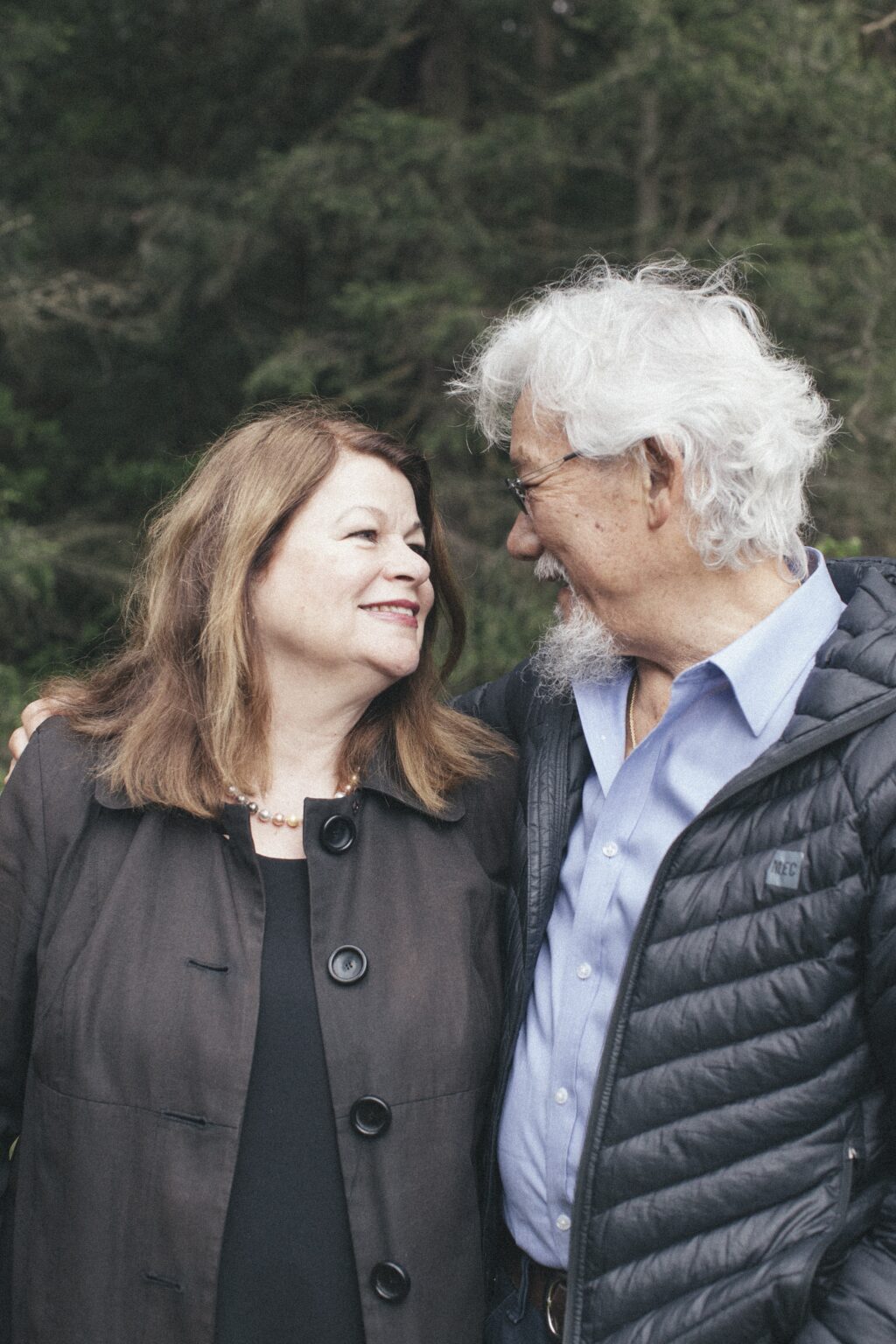
Tara Cullis and David Suzuki co-founded the David Suzuki Foundation in 1990. Photo: David Suzuki Foundation
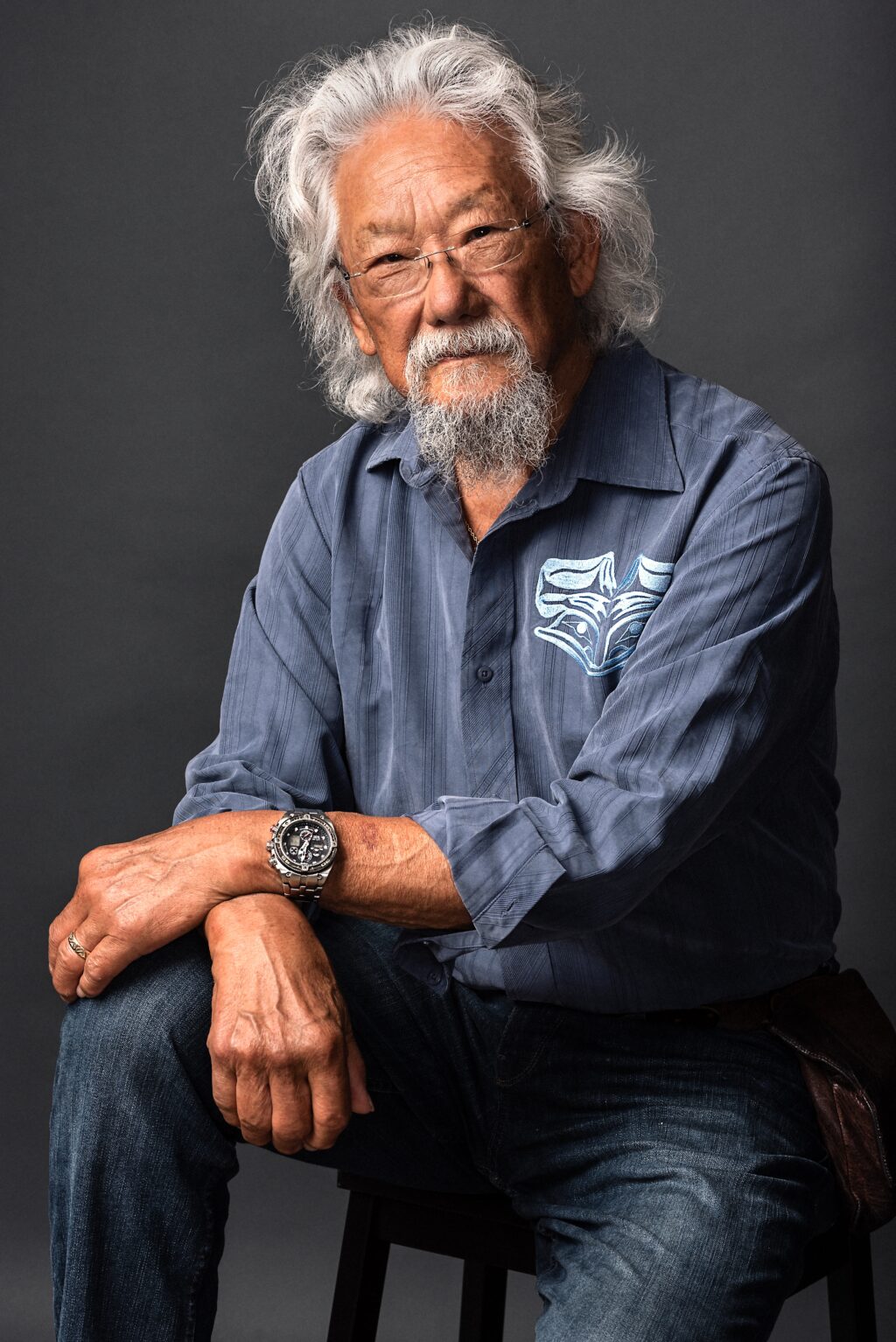
Suzuki went through a period of climate grief after realizing that climate change was threatening his grandchildren’s lives. Photo: Jennifer Roessler / David Suzuki Foundation
“It” is climate change, a subject Suzuki has been speaking about for decades as host of The Nature of Things. As the show celebrates its 60th anniversary today, the world-renowned geneticist and environmentalist says he’s not backing down from the battle for future generations. Fittingly, in tonight’s season premiere, “Rebellion,” he takes us to the frontlines of the climate revolt to meet the activists leading it, including Swedish teenager Greta Thunberg.
“I had to go through the period of grief,” he says. “Now I’ve gotten over that, and I’m more determined than ever to bang away. We can’t afford to sit around saying, ‘Oh, it’s too late. I’m so sad.’ We’ve got to do everything we can to lessen the impact. We can’t avoid it, but we can reduce the risk of how much it’s going to hit us.”
We sat down with Suzuki — virtually — to talk about the impact of The Nature of Things and what needs to happen to address the climate crisis.
I think it has touched something very deep. Increasingly, we live in cities, so nature has become less and less familiar and people love to learn about nature. I’ve always said we could do a show on the sex life of an oyster and I’ll bet people will love it because we know so little about the world around us.
We’ve raised a lot of issues about how science and technology and corporations are affecting our lives and we’ve stayed very relevant. The Nature of Things takes an issue and then probes it further and says, “What are the implications of this? What does the science tell us? What is the economics of it?”
We did our first program on climate change in 1989. And since then, we have done literally dozens and dozens of shows on climate change — how it’s affecting the salmon in the Fraser River
, how it’s affecting the polar bears and so on. We raised issues before they became popular — and we had to fight to do it. Now, of course, everybody has jumped on climate change because it’s no longer something you can deny.
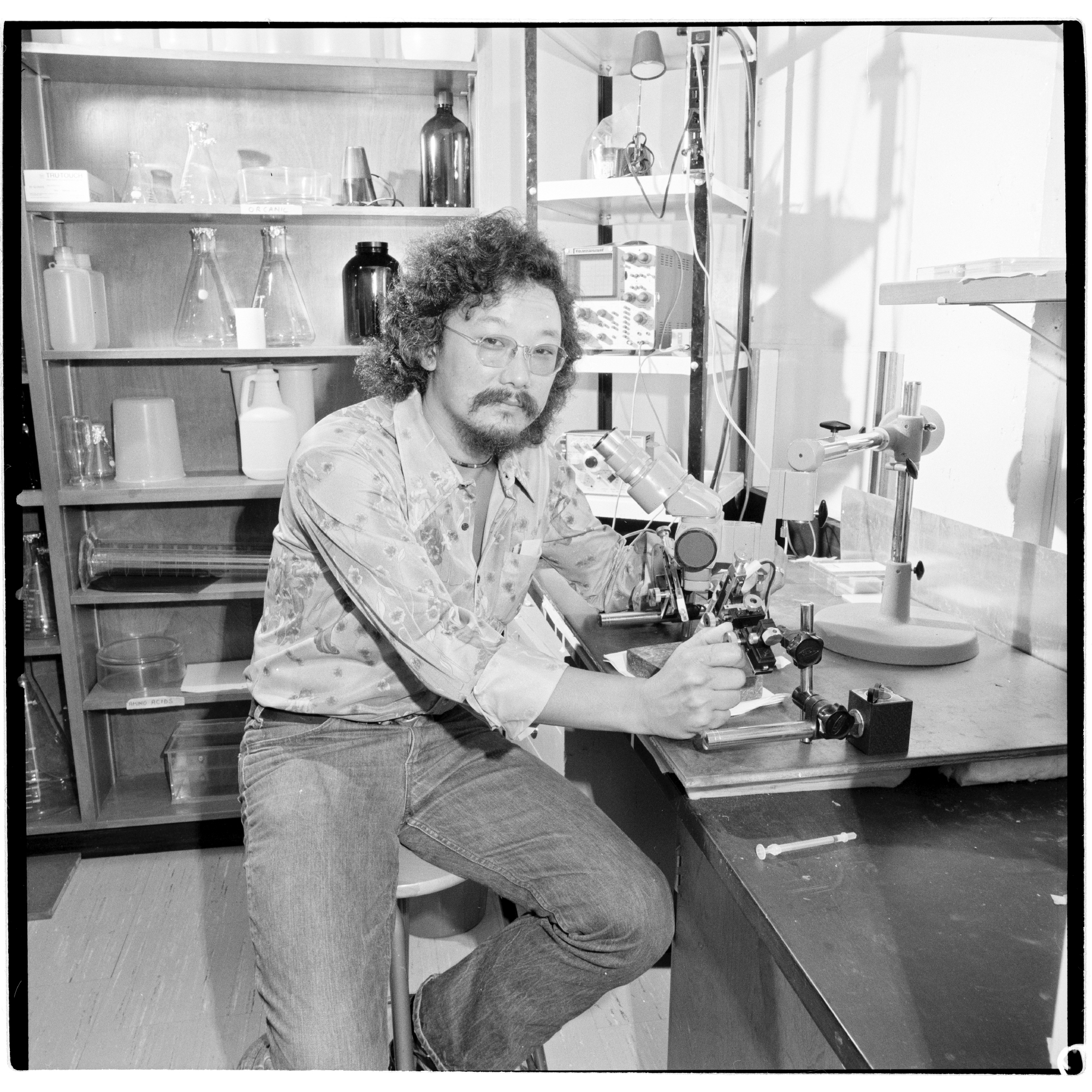
Before joining The Nature of Things, Suzuki was host of CBC Radio’s Quirks & Quarks. Both programs have been at the forefront of covering climate change in Canada and in the world. Photo: CBC
1988 was a crucial year. There was a conference in Toronto with more than 300 climatologists, scientists, environmentalists and politicians. It was a big deal because it was opened by prime minister Brian Mulroney.
The conference ended with a press release
that said global warming represents a threat to human survival, second only to an international nuclear war, and they called for a 20 per cent reduction in greenhouse gas emissions in 15 years.
Mulroney never committed to it. Why? Because the report said in order to achieve a 15 to 20 per cent reduction in 15 years, you have to spend tens of billions of dollars upfront, but you will realize a net saving of over $100 billion. Mulroney knew he would take a beating from corporations and someone else would be in office to say, “We’ve reached the goal and we’ve saved all this money.” So, it made no political sense to do the right thing.
“We’ve got this terrible situation where politics trumps everything.”
Now look at what’s happened. The issue is much more serious.
[Prime Minister Justin] Trudeau signed the Paris Agreement and we celebrated. Then he bought a pipeline.
Trudeau’s argument for buying a pipeline is that we’ve got to increase the oil coming out of the tar sands in order to make the money to afford to reduce our emissions. Like, what the hell is that but an absolutely crazy political argument?
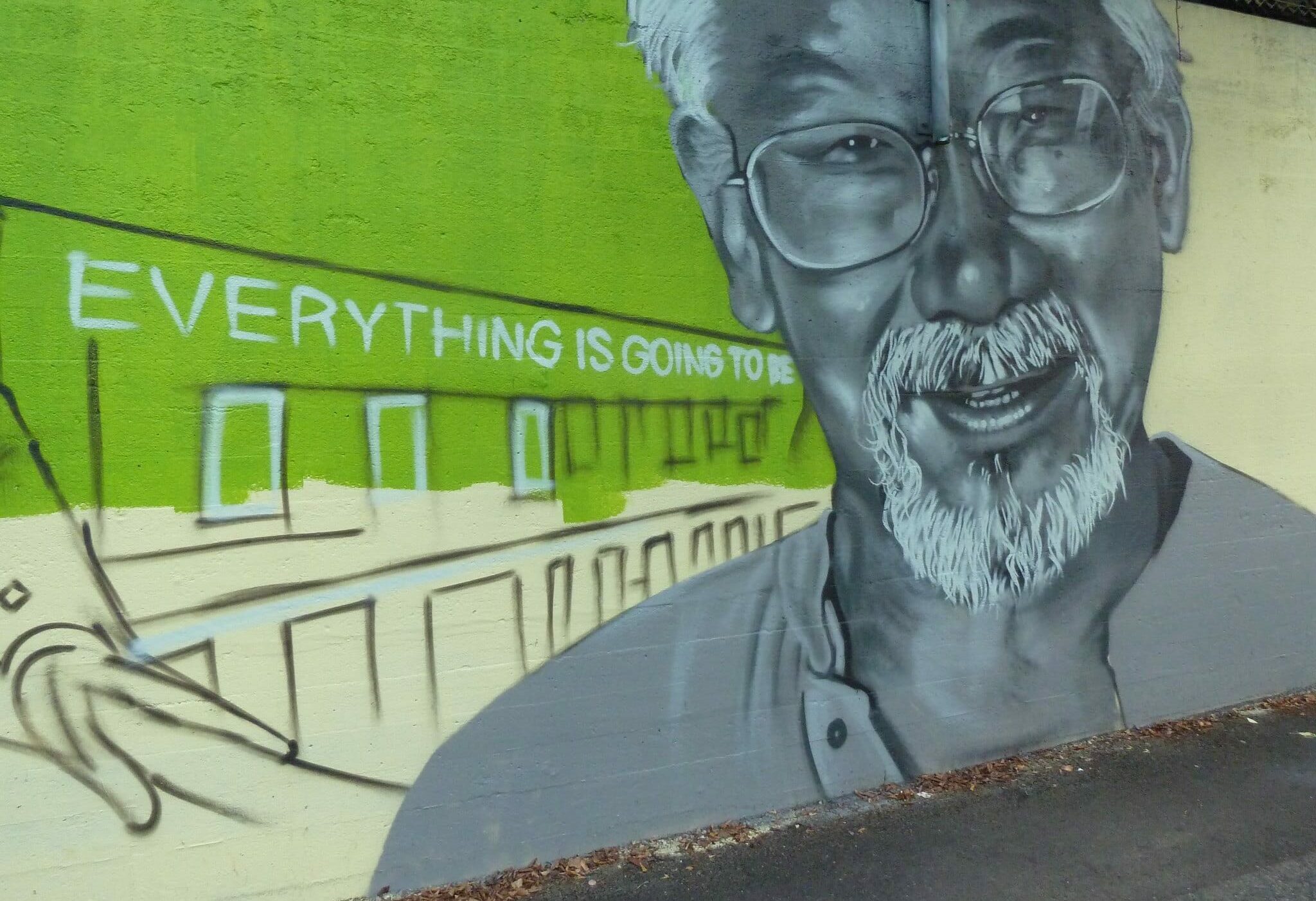
A mural of David Suzuki in Vancouver, which has since been painted over, left passers-by wondering if everything was going to be OK. Hint: it’s not. Photo: Matt Boulton / Flickr
At the last COP meeting in Madrid last December, [Jonathan] Wilkinson, our environment minister, came back and said, “Canada is going to go for carbon net zero by 2050.” That is not a commitment at all — it means we’re not going to do anything.
Why do I say it doesn’t mean anything? Governments will change and no politician in office today will still be in office by 2050. So, when they don’t meet the target, who’s accountable? You can’t throw anybody or a party in jail for a commitment that was made in 2020. It’s a totally meaningless commitment. And over and over again, that’s what Canada has done.
We’ve got this terrible situation where politics trumps everything.
It’s been very, very slow winning over the public on an issue that’s so loaded with economic implications. My fear now is that the fossil fuel industry and corporations have so much momentum that calling for a shift is really going to be difficult.
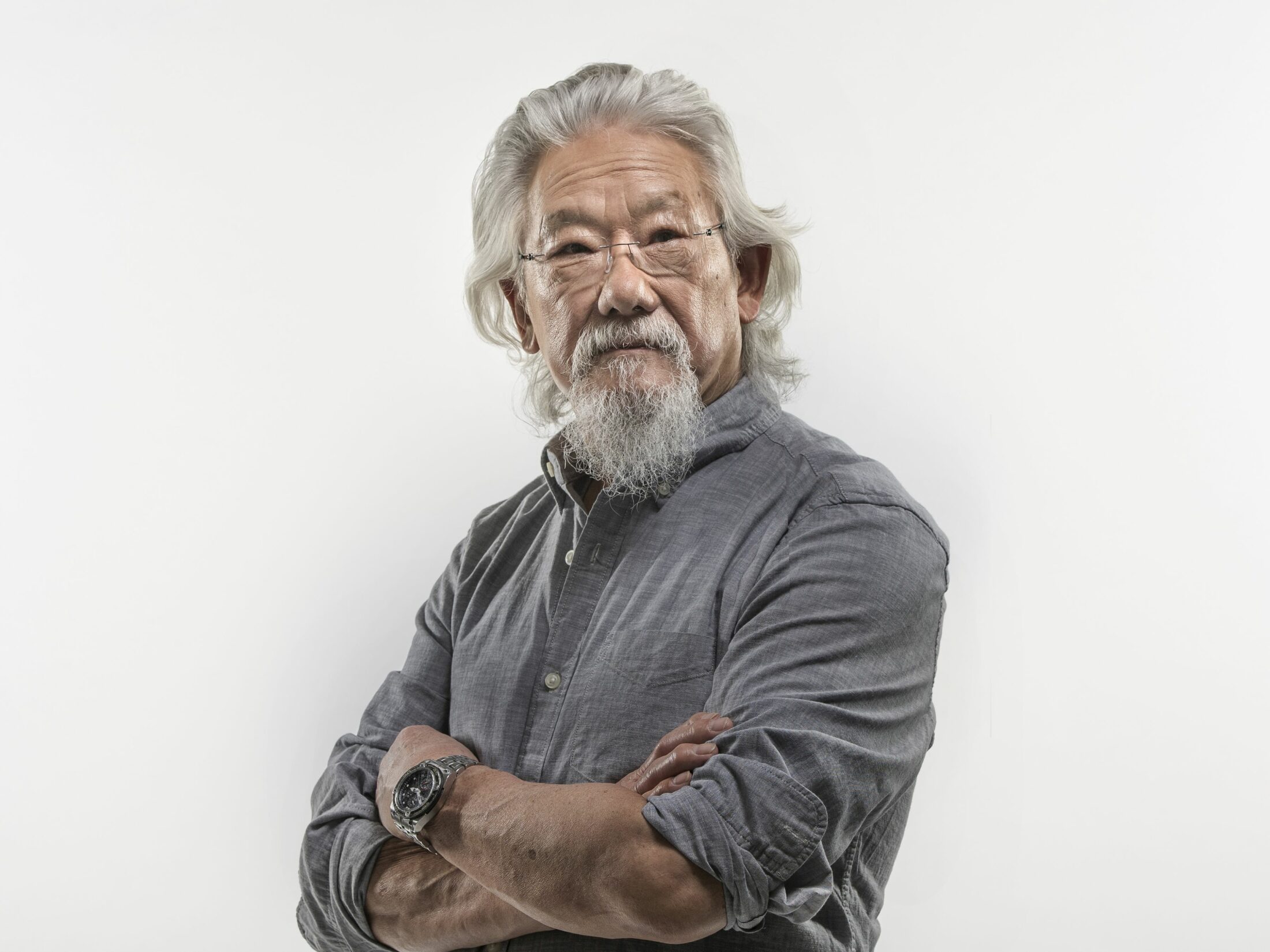
Climate commitments without regulated targets are meaningless, Suzuki says. Photo: Kevin Van Paassen / CBC
This is what makes me so excited about Seth Klein’s new book, A Good War. His whole point is that when you have a time of crisis, everything can shift, and he looks to World War Two as an example. Climate change is an existential challenge, and it’s a much greater threat to human survival than World War Two ever was. If we make the commitment, I guarantee all kinds of opportunities will arise.
The show that we did on the Amazon changed my life and changed my family’s life.
[“Amazonia: The Road to the End of Forest” aired in 1989 and explored deforestation and industrial development in the Amazon.]
My problem has always been I do these shows, but then I go, “Oh god, we gotta do something,” and I keep getting involved.
One day, I called Tara and said, “The Amazon forest is on fire. We can’t even take off in our plane today because there’s so much smoke.” She said I was crying, but I don’t remember that.
And then I met this remarkable Indigenous [Kayapo] leader, [Paulinho] Paiakan, who was leading the fight against the logging and gold mining in his territory. The Kayapo actually killed people that were coming into their territory, so Brazilians are really afraid of them. Paiakan saw that [the state-owned power company was] going to build a big dam that was going to flood his territory. And so he asked me to help. I called Tara and said, “We need help.”
And that began a whole phase of activism. We raised a lot of money for them and brought Paiakan here to live with us for six weeks because he had been threatened with death. It’s a very long story! But Paiakan and I stayed in touch all these years. He died while we were in lockdown of COVID-19, so we’ve just been heartbroken about that. But the dam that we stopped in 1990 is now built. And the fight goes on.

An aerial view of the Amazon rainforest, which Suzuki described as “the planet’s greatest gathering of life” in the 1989 show “Amazonia: The Road to the End of Forest.” Photo: Neil Palmer / CIAT / Flickr
Well, we delayed things. But what happened there is happening right here in British Columbia. We fought against the Site C dam back in the 1970s. I was invited up there by a group that was fighting against the dam to do a talk. We went out fishing and because [BC Hydro engineers] suddenly lowered the water, we hit a bunch of rocks and turned over. I almost drowned up there fighting against the dam. We stopped it, but now we have a government [the NDP] that was against the dam, but it’s being built nevertheless.
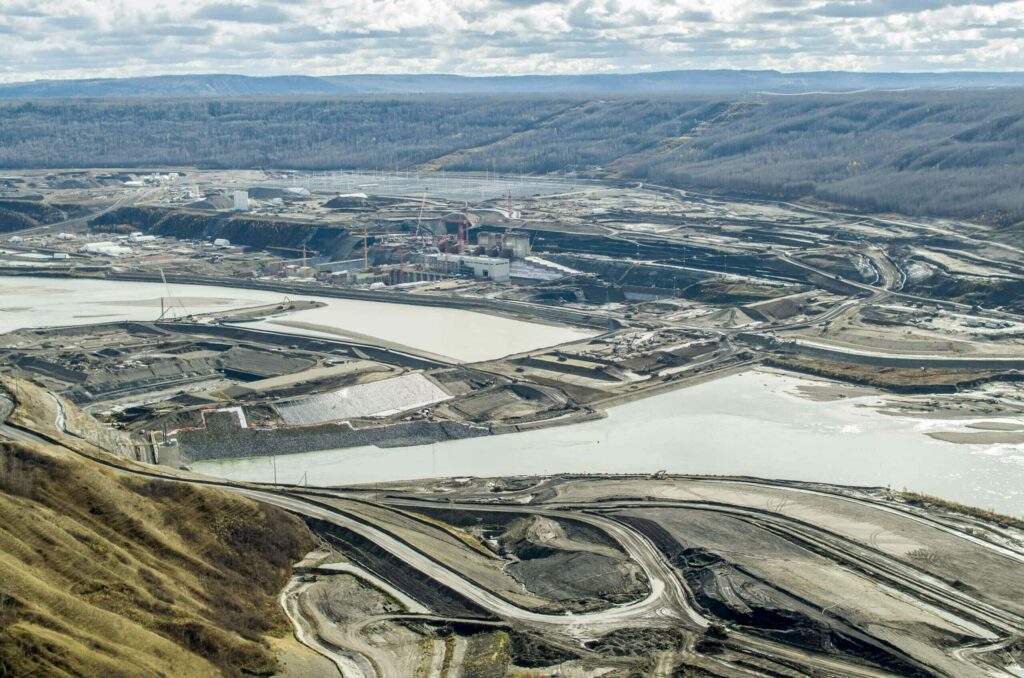
Suzuki has been opposed to the Site C dam, shown here under construction, since it was first proposed in 1970. The dam will put habitat for more than 100 vulnerable species, Indigenous burial grounds and traditional hunting and fishing areas under water. Photo: Jayce Hawkins / The Narwhal
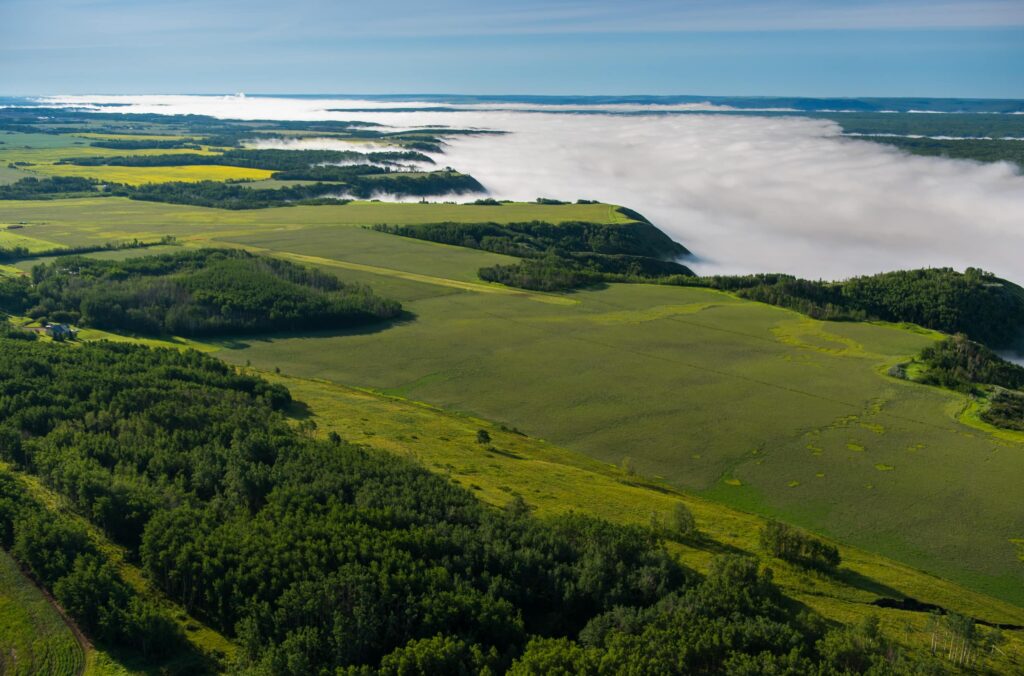
Morning mist rises from the Peace River Valley. More than 120 kilometres of the Peace River and its tributaries are slated to be flooded by the Site C dam, which will destroy some of Canada’s richest agricultural lands. Photo: Garth Lenz / The Narwhal
If we’re taking climate change seriously, that area should not be flooded because it should be the breadbasket of the north. We’ve got to change our food system. We can’t be importing it all from 5,000 miles away. We’ve got to grow our own food up there.
In the 1980s, we had this explosion of young people across Canada called the Environmental Youth Alliance. Thousands of kids across the country were just as passionate, just as involved. The problem with youth is sustaining that drive. They’re at that cusp when their whole lives are going to change — they’re going to university, they’re getting sexually involved — and all kinds of things are distracting them.
I think the difference now is the issues now are far less controversial than they were back then and we’ve got this remarkable person in Greta. When she was here in Vancouver [for the climate march in October 2019], every young person wanted a piece of her. She is such a hero. Even an adult would be destroyed by that kind of pressure. I wouldn’t have been able to take it. But she’s not distracted by all of this publicity and celebrity. She just keeps saying her message over and over again.
I think that Greta is a very unique person for this moment. She has galvanized the youth and all kinds of groups and elders. People like Jane Fonda are getting up there and supporting the youth. I think that is a very powerful force that is quite different and will sustain itself.
What I’ve come to realize through Indigenous people and The Nature of Things is that what is driving us on a destructive path is our anthropocentric way of seeing the world, where it’s all about us.
For most of human existence, we had what we call an eco-centric way of seeing the world. We see that we live as one small part of a web of relationships with animals and plants, with air, water, soil, sunlight — that whole web is what allows us to live. But when we cut some of the strands, we destroy the integrity of what allows us to be a part of it. Whether or not we survive or die out isn’t the issue. If human beings go extinct, the rest of life will flourish. We are the cause. And so we’ve got to see ourselves as part of that web and protect it.
An understanding that everything is connected and what you do has consequences. That’s the heart of environmentalism. And if we keep putting these human-created things — like the law, or the economy, or politics — above the very web of life that sustains us, then we’re screwed. And I hope that out of The Nature of Things, the interconnectedness of everything comes out and the ways that we are so destructive comes out.
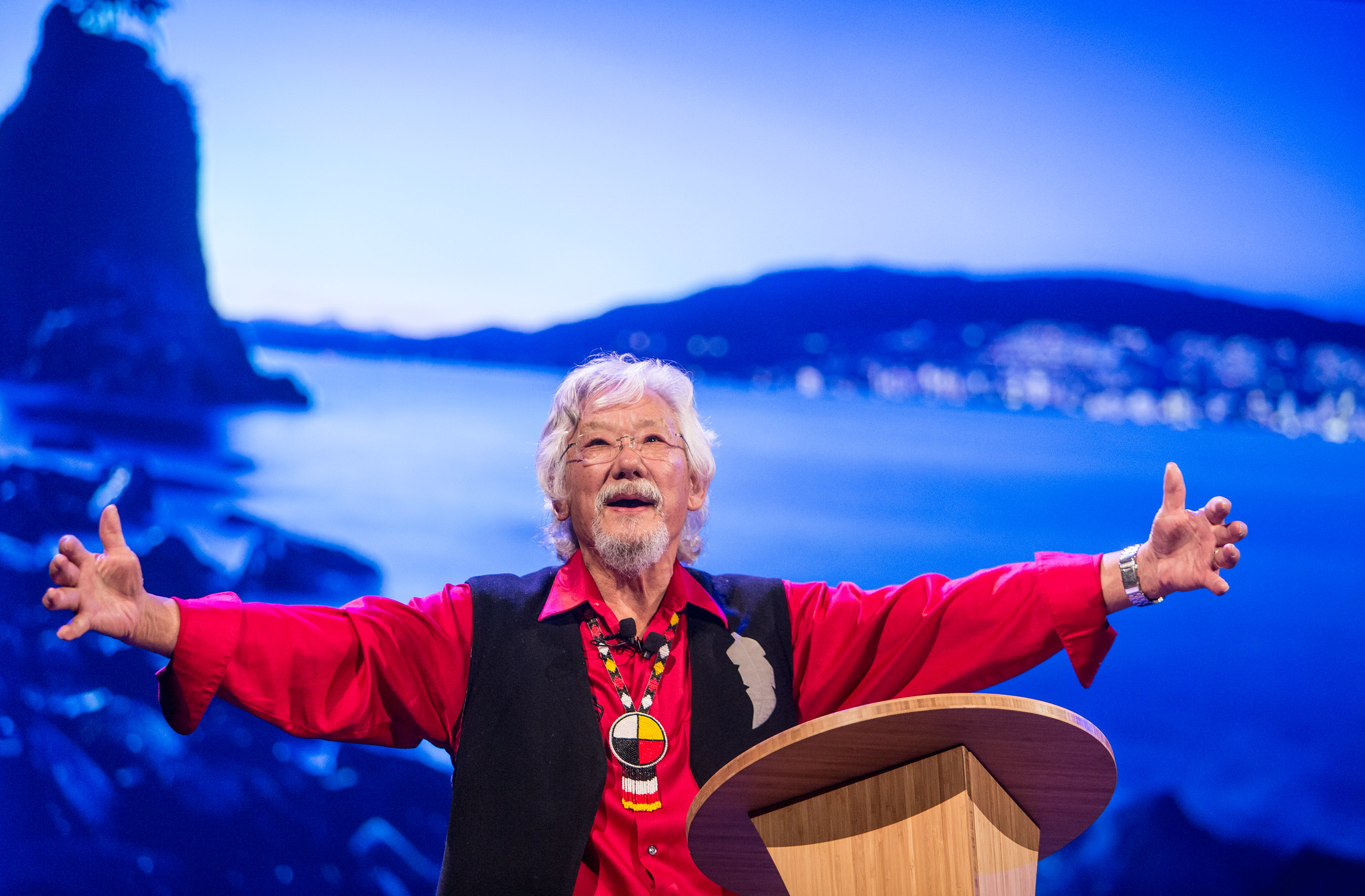
Suzuki says Indigenous people have helped him understand our intimate connections to the natural world. Photo: Kris Krüg / Flickr
For six months, Tara and I were at our cabin on Quadra with Sarika and her husband and their three kids. We were just planning to be there for four days, and then the lockdown came and we never left. It was the happiest six months of my entire life. No flying, no television, no newspapers, no cellphones. I just got to hang out with my grandchildren day after day and see the world through their eyes.
Rain or shine, out we went. We looked for snakes and salamanders and frogs and we even found an alligator lizard. I didn’t realize there were lizards on the island. And the tide pools are just wonderful with sand dollars and shrimp and crabs and oysters and clams. The kids are like sponges, I couldn’t believe it. They soaked up the lab names for the animals. What better way to learn about nature. And that went on day after day. They were such a joy. I was so happy and had a purpose in life.
Get the inside scoop on The Narwhal’s environment and climate reporting by signing up for our free newsletter. A $335 million funding commitment to fund...
Continue reading
Canada’s first-ever Indigenous governor general doesn’t play favourites among our majestic natural wonders, but she...

In Alberta, a massive open-pit coal mine near Jasper National Park is hoping to expand...

A trade war could help remake B.C.’s food system, but will family farmers be left...
